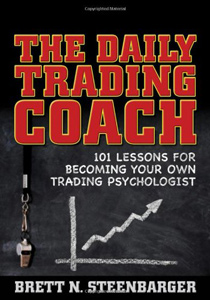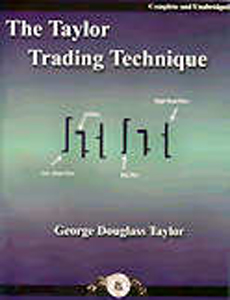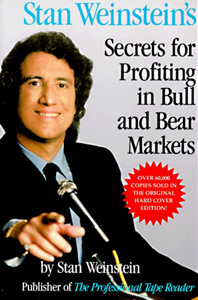Value Funds
Further Reading
Funds that try to make profit by investing on under priced stocks are known as value funds. A value fund looks for cheap stocks that it considers being under valued by the market and invests on such shares with expectations of making profit in future when these shares will rebound with increased demand.
Value Funds: Determining Stocks to Invest
Although value fund managers may often look for undervalued firms to invest on, but that is not the only issue they take under consideration while picking companies for investment. Usually value fund managers focus more on safety and looks for companies with low P/E ratios. Companies that have stopped growing and pays dividend are seen as value stocks and are usually the primary targets of the value funds. This is why value funds are capable of generating current income through the dividends as well as long term growth (which may happen once the stocks start to gain in the market).
It is to be mentioned that every large mutual fund family consists a value fund component which is often divided into several parts based on size. For instance, a fund family may consider holding small, middle and large cap value funds from which the investors can choose based on their preference.
Distinguishing Between Growth Funds and Value Funds
The basic difference between the growth funds and the value funds is that the growth funds will make investments on stocks on the basis of their capability to enhance earnings while on the other hand the value funds are mainly interested about quality stocks that are not in favour of the market. As far as the return is taken under consideration, value funds will usually come up with less volatile and conservative returns in comparison with the growth funds.
Problems of Tagging a Fund as Value or Growth Fund
One of the main limitations of tagging funds as value and growth is that fund managers come up with investment philosophies that often vary where stocks that were seen as value stocks suddenly can turn out as growth stocks. Say for instance, lets consider Company XYZ has its shares priced as $25 for a long time and was seen as value stocks by the managers. Now suddenly some significant change in the industry has given it a boost and now the XYZ shares are priced $55 in the market, where the stocks are now placed in the growth category. Here the question may arise whether the value fund manager who bought those XYZ shares for $25 should sell these shares during the boom or not? According to some, if the manager thinks that XYZ is not undervalued anymore, then s/he may sell it off. But not all value managers will act in this manner.
Expert Recommendation
It is always recommended by experts that a trader should hold a mix of value and growth style funds in order to reduce risks as this will allow good times for growth to match up with the bad times for value and the other way around.
Glossary List- How to Trade Forex and Gold Options
- How to Trade the Gold Price and Profit!
- Forex Trading the EUR/USD Pair € EURO and $ US Dollar
- How to Trade Stock Market Indices S&P500
- How to Trade Crude Oil
- Forex Trading Psychology
- What Are Broker Recommendations?
- Free Tickets to Trading & Investing Seminar & Expo ($18) Brisbane 2013
- Stock Calc App
- All About Warrants
- Introduction to Exchange Traded Funds
- Introduction to Exchange Traded Funds: Features
- Introduction to Exchange Traded Funds: Domestic ETFs
- Introduction to Exchange Traded Funds: International ETFs
- Exchange Traded Commodities
- Australian Stock Scan
- Australian Online Share Trading
- List of Trading Books
- Interesting Thoughts about the Australian Dollar
- What's the Meaning of Hawkish?
- Do You Know How To Use the P/E Ratio
- Trading, Religion and Politics - Do They Have Anything in Common?
- Shares that are Volatile that Double and Half in the Short Term
- Telstra (TLS) T3
- Margin Call by E-mail
- The Cost of Holding a Position
- Lack of Disclosure: Compensation from ASX Listed Company
- Unrealistic Returns and Benchmarks
- CMC Markets Down
- Quality versus Quantity Forex Trading
- Woolworths 1H Sales $30.7bn up 3.2%
Date added 31-01-2013 - ASIC Fines CommBank's CommSec
Date added 25-09-2012 - Industry Super Network Calls to Ban High Frequency Trading (HFT)
Date added 22-09-2012 - NAB Launches Online Share Trading Platform
Date added 19-09-2012 - Reserve Bank of Australia Says 23 Countries Holding AUD
Date added 18-09-2012 - Australia Post Digital Mailbox
Date added 10-09-2012 - Winners and Losers of Trading for Week 2
Date added 16-01-2012 - 2012's First Week of the Best and Worst Traded Stocks
Date added 09-01-2012 - 2011's Last Best and Worst Traded Stocks
Date added 05-01-2012 - Best and Worst Pre-Christmas Traded Stocks
Date added 30-12-2011 - Trading Winners and Losers for Dec. 12-16
Date added 19-12-2011 - Best and Worst Traded Stocks for Dec. 5-9
Date added 13-12-2011 - Top 3 Best and Worst Traded Stocks
Date added 05-12-2011 - ASX Glitch Trading Halt
Date added 27-10-2011 - Worst Trade Stocks (and the Best)
Date added 06-08-2011
Top 150 Public Companies Listed on the Australian Stockmarket as at 29/05/2009
- BHP Billiton
- Westpac Banking Corporation (WBC)
- Commonwealth Bank of Australia (CBA)
- National Australia Bank (NAB)
- Telstra (TLS)
- ANZ
- News Corporation (NWS)
- Woolworths Limited(WOW)
- Woodside Petroleum Limited (WPL)
- Rio Tinto
- Westfield Group (WDC)
- Westfarmers Limited (WES)
- QBE Insurance
- CSL
- Newcrest Mining Limited (NCM)
- Origin Energy Limited (ORG)
- Santos Limited (STO)
- AMP Limited (AMP)
- Macquarie Group (MQG)
- Foster’s Group Limited (FGL)




